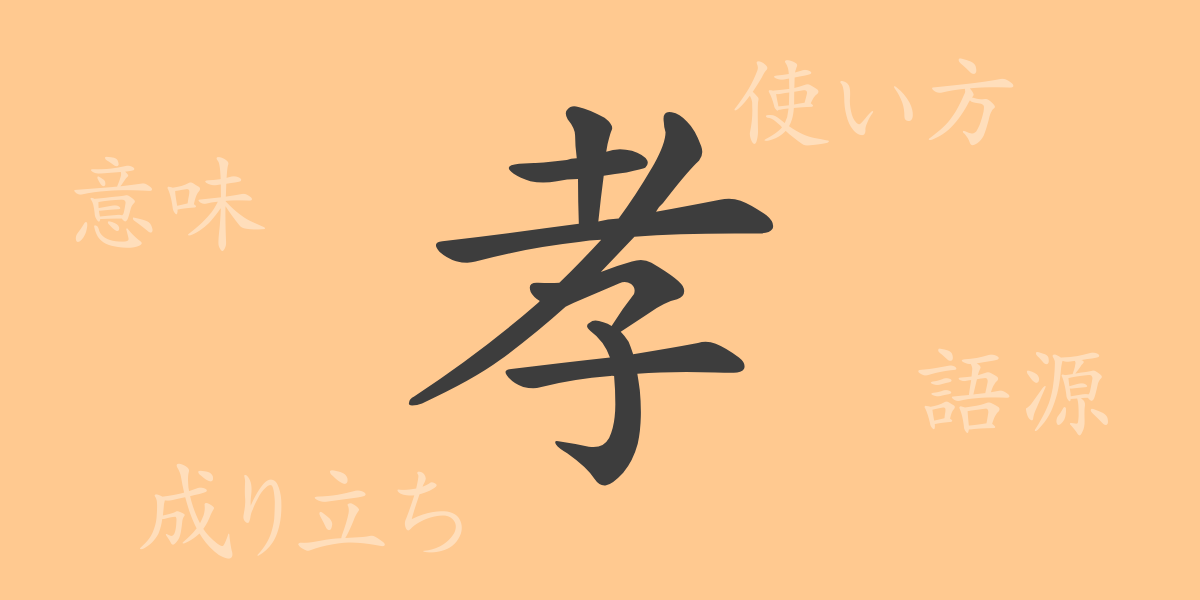The spirit of “孝(こう)” has been deeply rooted in Japanese culture since ancient times. In this article, we will focus on the kanji “孝(こう),” exploring its origin, meaning, usage, readings, stroke count, and radical. Additionally, we will delve into the rich expressions and cultural background through idioms and phrases that include “孝(こう).” Let’s embark on a journey into the world of “孝(こう),” a symbol of traditional Japanese values.
Origins of 孝(こう)
The kanji “孝(こう)” originates from ancient Chinese characters. It can be found in the oracle bone script, depicting a child showing respect to their parent. This character has been passed down as an important value in East Asian cultures for thousands of years. In Japan, with the arrival of Buddhism, many Chinese characters, including “孝(こう),” were widely adopted, and the concept of filial piety became deeply ingrained.
Meaning and Usage of 孝(こう)
“孝(こう)” signifies “respect and love towards parents.” This kanji is used in words expressing filial piety, such as “親孝行(おやこうこう),” “孝行(こうこう),” and “孝心(こうしん).” It also represents the moral obligation and responsibility that children should have towards their parents. “孝(こう)” encompasses both actions and the attitude of the heart.
Readings, Stroke Count, and Radical of 孝(こう)
The kanji “孝(こう)” has various characteristics, including its readings, stroke count, and radical.
- Readings: The on-yomi (Chinese reading) is “コウ(こう),” with no specific kun-yomi (Japanese reading).
- Stroke Count: 7 strokes
- Radical: 子部(こぶ, ko-bu), which means “child.”
Idioms, Phrases, and Proverbs Using 孝(こう)
There are many idioms, phrases, and proverbs in Japanese that include “孝(こう).” Here are a few examples:
- 孝行息子(こうこうむすこ): A son who shows great respect and love towards his parents.
- 孝行娘(こうこうむすめ): A daughter who shows great respect and love towards her parents.
- 孝心(こうしん): A deep sense of love and respect towards parents.
- 親不孝(おやふこう): Failing to show respect towards parents or acts that reflect such behavior.
- 「孝は百行の首」: A proverb meaning filial piety is the most important of all virtues.
Conclusion on 孝(こう)
“孝(こう)” is more than just a character; it is a concept deeply embedded in Japanese culture and ethics. This word, symbolizing respect and love for parents, has been cherished across generations. Even in modern society, its value remains undiminished, passed down in the hearts of people. Through this article, we hope you have gained a deeper understanding of the profound meaning and background of “孝(こう).” Filial piety is an important value that transcends time, and we should always be mindful of it in our lives.

























